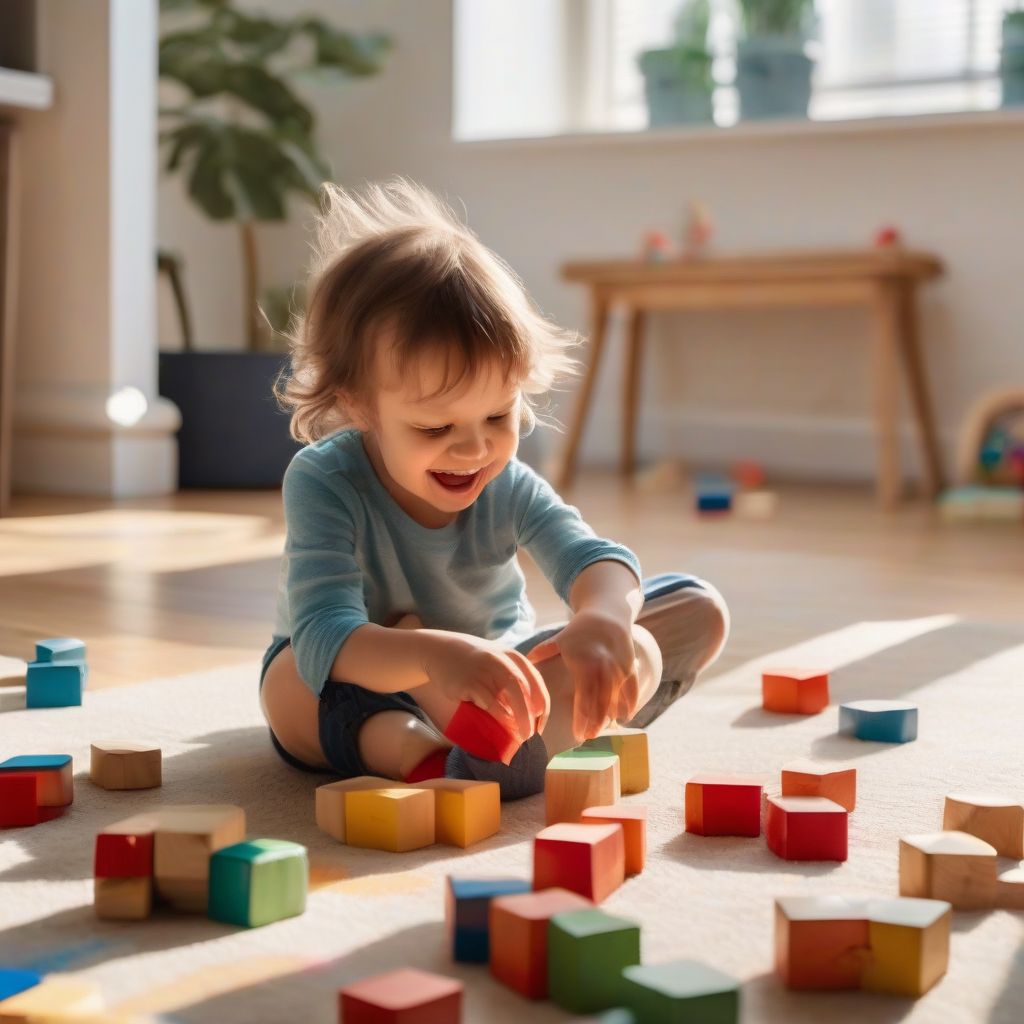“It takes a village to raise a child,” the old adage goes. While that village encompasses educators, caregivers, and the community, parents are the first and most influential figures in a child’s life, especially during the crucial years of early childhood development.
From infancy to the tender age of eight, children are like sponges, soaking up information and experiences that shape their cognitive, social, emotional, and physical growth. As parents, your role in this journey is not just significant – it’s profound. You are your child’s first teacher, playmate, and confidante, laying the foundation for a lifetime of learning and well-being.
Beyond ABCs and 123s: Understanding Holistic Development
Early childhood learning isn’t confined to memorizing letters or numbers. It’s a vibrant tapestry woven from exploration, discovery, and interaction. Think of it as a garden where a child’s potential blossoms through:
- Cognitive Development: This encompasses thinking, problem-solving, language, and memory. It’s about nurturing curiosity, encouraging questions, and fostering a love for learning.
- Social-Emotional Development: This focuses on understanding and managing emotions, building relationships, and developing empathy. It involves teaching children how to navigate social situations, cooperate with others, and express themselves constructively.
- Physical Development: This involves gross motor skills (like running and jumping) and fine motor skills (like holding a crayon or using scissors). These skills are vital for physical health, coordination, and independence.
Everyday Moments, Extraordinary Impact: How Parents Can Make a Difference
The beauty of fostering early childhood development is that it doesn’t require elaborate setups or expensive toys. The most impactful learning often happens organically through everyday interactions:
1. Turn Daily Routines into Learning Opportunities:
- Bath Time: Transform bath time into a sensory play experience. Let your child explore different textures with sponges, cups, and toys. Introduce words like “float” and “sink” while playing with objects.
- Meal Prep: Invite your little one to help with age-appropriate tasks like washing vegetables, stirring batter, or setting the table. Talk about colors, shapes, and smells as you cook together.
- Bedtime Stories: Make reading aloud a cherished ritual. Encourage your child to ask questions, predict what will happen next, and retell the story in their own words.
2. Embrace the Power of Play:
- Unstructured Play: Allow ample time for free play, whether it’s building a fort out of pillows or creating imaginary worlds with dolls. Unstructured play fosters creativity, problem-solving, and social skills.
- Play-Based Learning: Incorporate educational elements into playtime. Use building blocks to teach counting, play board games that encourage turn-taking, or create a scavenger hunt to develop observation skills.
- Outdoor Adventures: Nature is a fantastic teacher! Take walks in the park, collect leaves and rocks, or visit a local farm. These experiences expose children to new sights, sounds, and textures while promoting physical activity.
3. Be a Responsive and Engaging Role Model:
- Active Listening: When your child talks to you, put down your phone, make eye contact, and truly listen. Acknowledge their feelings and respond in a way that shows you understand.
- Positive Reinforcement: Celebrate your child’s efforts and achievements, no matter how small. Encourage their curiosity, praise their creativity, and let them know it’s okay to make mistakes.
- Emotional Literacy: Help your child identify and express their emotions. Use words to label feelings like happiness, sadness, anger, and fear. This will help them develop emotional intelligence and healthy coping mechanisms.
 Playing with Blocks
Playing with Blocks
4. Create a Language-Rich Environment:
- Talk, Talk, Talk! Engage in frequent conversations with your child, even from infancy. Narrate your day, describe objects and actions, and sing songs together.
- Read Together Every Day: Books open up a world of imagination and language development. Choose age-appropriate stories and poems, and encourage your child to ask questions and point out pictures.
- Limit Screen Time: While some educational apps and programs can be beneficial, prioritize real-life interactions and hands-on experiences for optimal language development.
5. Partner with Your Child’s Educators:
- Open Communication: Maintain regular contact with your child’s teachers or caregivers. Share information about your child’s interests, strengths, and areas where they might need additional support.
- Extend Learning at Home: Ask your child’s teacher about concepts they’re learning in school and find fun ways to reinforce those lessons at home.
- Volunteer: If possible, volunteer in your child’s classroom or school. This allows you to witness their learning firsthand and strengthen your connection with their educational journey.
Conclusion: The Gift of a Strong Foundation
The early years are a time of incredible growth and discovery for children. As parents, your role in shaping those formative experiences is immeasurable. By creating a nurturing and stimulating environment, you empower your child to develop a love for learning, build strong social-emotional skills, and reach their full potential.
Remember, parenting is a journey, not a race. Embrace the everyday moments, celebrate the small victories, and never underestimate the profound impact you have on your child’s life.
What are some of your favorite ways to engage with your child and foster their love for learning? Share your thoughts and ideas in the comments below!
[amazon bestseller=”early childhood development”]
